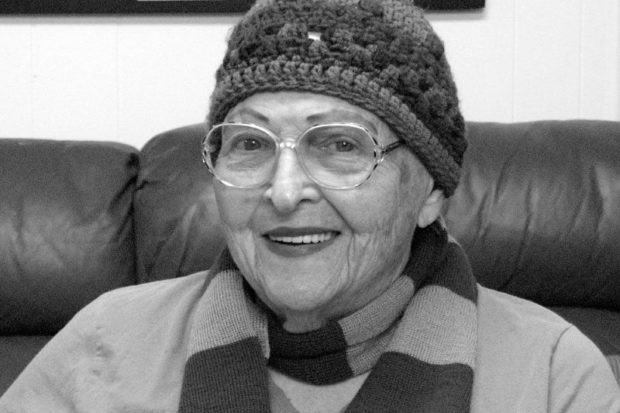

By Maria Telesco
On election night, a TV pundit proclaimed, “Tomorrow, half the people will be happy, and the other half will be angry.” The problem is, he failed to tell me which group I’d be in, and I can’t make up my mind.
I’ve spent most of my adult life fighting the death penalty and recently promoting Prop 34. Had it passed (it didn’t, by a small margin of 48–52), capital punishment would be banished from California. That would have made me happy. I’m both sad and angry that we still have a useless death penalty that doesn’t make us safe, occasionally executes an innocent person and gobbles money like slot machines at a casino.
But those who conjured up Prop 34 added that death by poison needle wouldn’t simply be deleted. It would be supplanted by life in prison without parole, commonly referred to as LWOP and by prisoners as “death by incarceration.”
So if Prop 34 had passed, I’d be happy that we’d have no more executions, although we hardly ever have one anyway—just 13 since 1992. But I’d be angry and sad that all 749 men and women on our death row would now be forced to accept LWOP, no other options, and die in prison from old age or illness rather than being put to death, after waiting 30 years, with a quick stick of the needle. Which is worse?
It’s wrong to kill people, and it’s just as wrong for us to kill people who kill people to convince them it’s wrong to kill people. I recently met with a former prison warden who had presided over four executions in Florida and a prison officer who had presided over 62 executions in Virginia. Like many other prison officials and executioners, they gave up their jobs because they could no longer continue killing people; the job was killing them. They agreed that killing killers doesn’t make us any safer than we would be if we just kept them in prison for a long time, even for life.
But keeping people in prison forever and throwing away the key, like every other seemingly good idea, has a hitch. Our legal system mandates that all who are convicted of murder and sentenced to death be given several opportunities to appeal their sentences. Some residents of death row, convicted and condemned, may be factually innocent. Some, while guilty, may have changed dramatically during their years in prison and would pose no risk to society if set free in their later years. Statistically, few remain a menace to society right on up into their old age.
The hitch in Prop 34, if it had passed, would have taken away the prisoners’ mandated right to appeals. As it is today, both federal and state governments must provide and pay appellate attorneys. In the LWOP situation of Prop 34, the prisoner could have an appeal, but only if he or she could afford to hire and pay for a lawyer. So, without arguing technicalities, LWOP de facto really means no more appeals.
Before and since the election, I’ve spoken to several condemned prisoners. They were unhappy about Prop 34 because it took away the one thing they hold onto that nobody could steal from them—hope. “Right up until the last minute,” one said, “we could still hope for a miracle. Prop 34 destroys our hope.” Another said that if Prop 34 had passed, some planned a group suicide.
Our criminal justice system is really a medium for revenge. There’s no justice. Someone once told me that “it doesn’t matter if innocent people are executed because someone has to die to atone for the one who was killed, it doesn’t matter if it’s the murderer or someone else, as long as someone pays.”
Another man, whose brother had been killed in a gang fight, said “I can’t wait to watch the execution [of the killer]. I want to see his mother cry and suffer like my mother did.” This isn’t justice. It isn’t even civilized. I wonder how many other Californians think like them.
Without a doubt, we need to eliminate the death penalty, but we have to devise a better substitute than LWOP to take its place. One suggestion has been to bring back the former sentence: 25 years to life for homicide, with an option of appealing after 15 years. Meanwhile, we continue feeding money into an immoral and ineffective sport called revenge.
Why? I just don’t get it. Do you?
*****
Maria Telesco is a retired registered nurse who has volunteered in various aspects of prison ministry for more than 25 years. Contact her at maria.telesco@sbcglobal.net.
